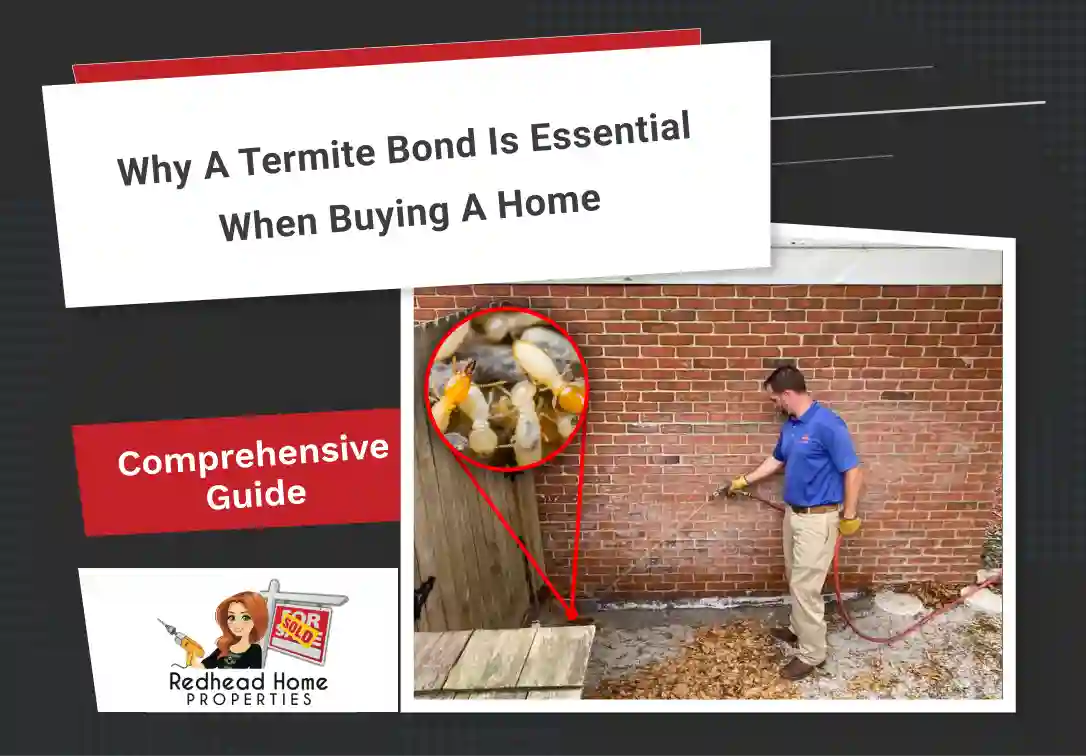
Buying a house in South Carolina feels like you’re excited, maybe a little bit nervous, but still focused on finding the perfect place. However, have you considered termites? These small creatures not only can eat through your dream house but also can cause a lot of damage to your wallet. A termite bond is one of the solutions. It is a very clever way of safeguarding your money.
In this blog, we will talk about what it is and how important it is, especially in South Carolina.

A termite bond is basically a written agreement that you and a registered pest control company have. The company undertakes the treatment of the house, carries out an inspection yearly and if there are any repairs or re-treatments they will provide them. It is like a safety net that perfectly matches your home buying termite protection plan.
In layman’s terms, the bond indicates that the property has continuous protection. It is a demonstration to sellers, agents, and banks that you are taking care of or protecting home investment from termites. Most of the agents in Charleston have been very conversational about how they have lost deals because of a lack of this paper.
Average price lands between $500 and $2,500 depending on size, soil type, and risk level. The midpoint sits near $1,500. Repair bills without a bond can reach $37,500 for big structural fixes.
Coverage parts include:
Keep in mind, South Carolina coastal soil invites Formosan termites that build huge nests.
A lender might ask for a Wood-Destroying Insect Inspection Report, also known as a wood-destroying insect inspection report (WDIR). That is a snapshot on one date. A termite bond vs termite letter debate is simple: the letter states current findings, while the bond keeps future harm in check.
Most contracts are for one year and then get renewed. Some builders also make available five-year contracts for new homes. Always make sure you go through the details of termite bond renewal terms and benefits in order to avoid any breaks in coverage. Even a small break can be a haven for flying insects.
A strong bond should list:
Ask your provider to spell out each item. That written clarity saves stress later.
Government-backed loans carry strict mortgage lender termite requirements.
Having the bond ready keeps the closing calendar on track and meets the termite inspection requirement for mortgage.
A termite bond transfer transferable bond lets the next buyer enjoy the same shield. Homes with a transferable bond sell faster and at higher price because buyers feel safe.
Need local guidance? Connect with Redhead Home Properties for hassle-free bond advice.
Warm humid counties like Charleston, Beaufort, and Horry see active Formosan colonies that hold up to a million insects. Buyers in these regions with high termite risk (humid, tropical) should budget for premium protection.
When you are looking for best pest control then first check for:
Ask about the home buying termite protection plan timeline so you know each future visit date.
Renew on time and keep proof of payment. Skipping a renewal may void the guarantee. Many firms give loyalty discounts or free moisture checks after the third renewal, so renewal can save cash.
Did you know that? Redhead Home Properties always keeps digital copies of client bonds for quick sharing with lenders.
A termite bond is definitely not an additional charge. It is the main risk control that protects your walls, your budget, and your comfort. The bond is a confirmation of the bank and the buyer’s trust, it fulfills the regulations of the state, and it continues to protect you even after you have unpacked. That is the main reason a termite bond is necessary when purchasing a house in South Carolina.
One year with automatic renewal clauses. Multi-year options exist for new builds.
Re-treatment, annual inspections, and, if chosen, repair of new termite damage.
Yes, if the agreement lists transfer terms. Nearly all buyers request this.
I'm Zoey Wilson. I am a professional content writer with 5+ years of experience creating research-based, informative, and explicit content to help readers understand the topic, form opinions, and implement processes. My content work combines deep market knowledge and a practical approach, giving you a real picture of today's industry landscape with reliable insights.